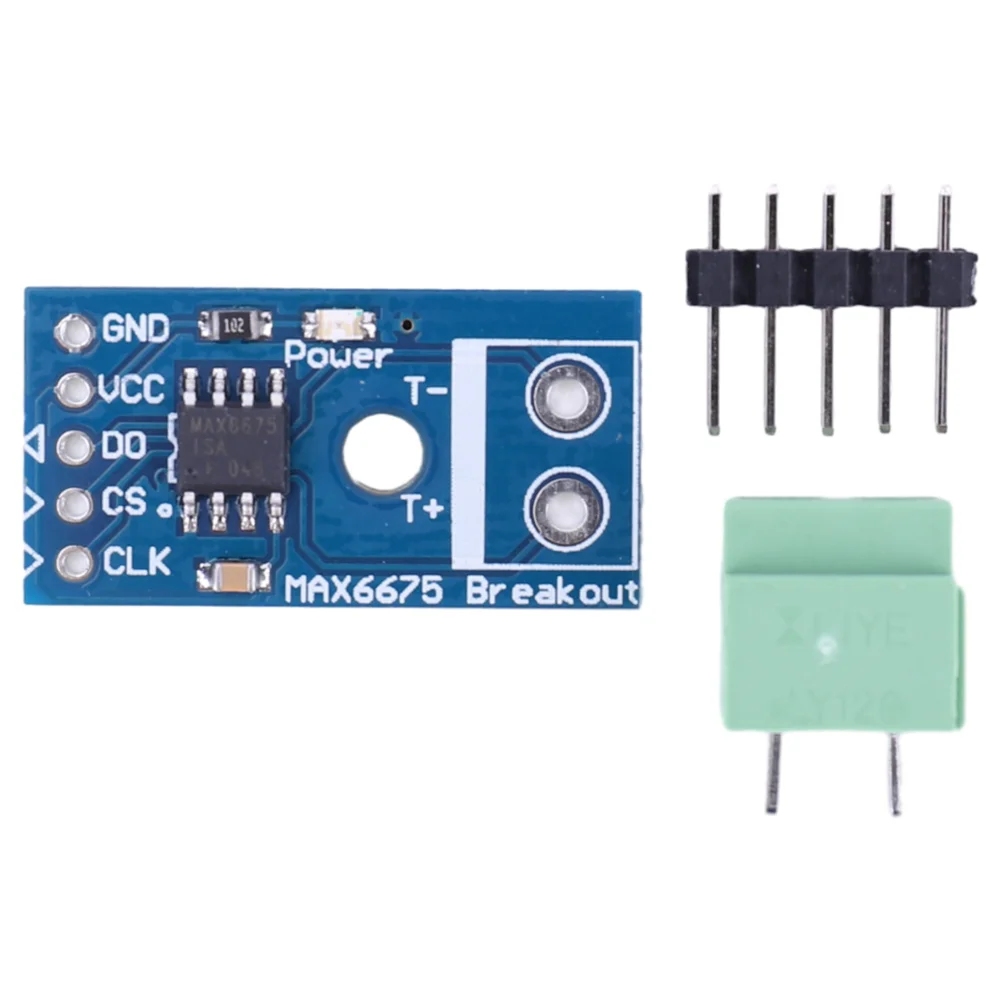Specification:
Origin: Mainland China
Type: Temperature Sensor
Model Number: Sensors
Usage: Temperature Sensor
1. The MAX6675 is a sophisticated single-chip thermocouple-to-digital converter.
2. It features an internal signal conditioning amplifier, 12-bit analog/digital thermocouple converter, cold-end compensation detection and correction, a digital controller, an SPI-compatible interface and a correlation logic control.
3. The MAX6675 features a signal conditioning amplifier that converts the thermocouple signal to a voltage compatible with the ADC input channel.
4. The T and T- input terminals are connected to a low noise amplifier A1 to ensure the accuracy of the detection input.
5. At the same time, the thermocouple connection wires are isolated from sources of interference.
6. The thermal potential output from the thermocouple is amplified by the low noise amplifier A1 and then buffered by the A2 voltage follower before being sent to the input of the ADC.
7. The cold end temperature of the thermocouple needs to be compensated for before converting the temperature-voltage value to an equivalent temperature value. The cold end temperature is the difference between the temperature in the vicinity of the MAX6675 and 0°C from the actual reference value.
8. The function of the thermocouple is to detect the temperature difference between the hot and cold ends.
9. The temperature of the thermocouple\'s hot node can vary from 0°C to 1023.75°C.
10. The cold end is the temperature around the board on which the MAX6675 is installed and varies between 20°C and 85°C.
11.When the temperature of the cold end fluctuates, the MAX6675 can still accurately detect the temperature change of the hot end.
12. The MAX6675 detects and corrects for ambient temperature changes through cold-side compensation.
13. The device can convert the ambient temperature to a temperature compensated voltage via an internal temperature sensing diode. The output measures the voltage.
14.The internal circuitry of the device sends the diode voltage and thermocouple voltage to the ADC.
Features:
1. SPI interface for easy connection to arduino and microcontrollers, soldered 2.54mm pitch pins
2. Temperature measurement range of 0°C to 1024°C with 0.25°C converter temperature resolution.
3. On-chip cold-end compensation. High impedance differential input. Thermocouple disconnect detection.
4. Wide operating voltage range of 3.0-5.5V and operating current of 50mA.
5. Operating temperature range of -20 °C to -8 5 °C.
6. module size: 27*14*3mm/1.05*0.55*0.12in, PCB board hole diameter 3mm/0.12in
7. K-type thermocouple wiring position, the use of 301 ordinary terminals, convenient, simple.
Note:
Due to the different monitor and light effect, the actual color of the item might be slightly different from the color showed on the pictures. Thank you!
Please allow 1-2cm measuring deviation due to manual measurement.
Package Content:1*Thermocouple Sensors






































